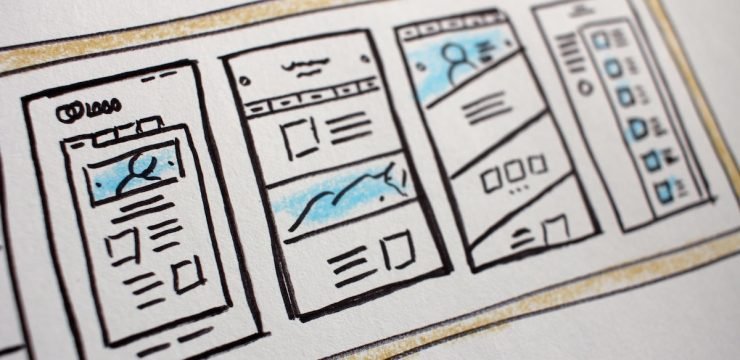So, How Long Does it Take to Build a Website?
In today’s digital age, having an online presence is essential for any business or individual. One of the first steps in establishing an online presence is building a website. However, many people may wonder how long it takes to build a website, and what factors influence the development process. In this post, we’ll explore the average time it takes to build a website, the different ways to build a website, and what factors affect the timeline.
The Website Development Process
Before we dive into the specifics of building a website, it’s important to understand the website development process. Website development involves designing, coding, and testing a website to ensure it functions correctly. It also includes creating and organizing content and ensuring a positive user experience (UX). The development process can take anywhere from a few days to several months, depending on the complexity of the project.
Types of Websites
The type of website you want to build will determine how long it takes to build your website. A simple website, such as a one-page website or a basic website with only a few pages, can take anywhere from a few hours to a few days to build using a website builder. However, a multi-page website with custom design elements and advanced functionality could take months to develop.
How Long Does it Take to Build a Website Using a Website Builder?
Using a website builder is the easiest and fastest way to build a website. Popular website builders like Wix, Squarespace, and WordPress offer templates and drag-and-drop interfaces that allow you to create a website without any coding knowledge. Building a website using a website builder can take anywhere from a few hours to a few weeks, depending on the complexity of the website.
Building a Website from Scratch
Building a website from scratch is more time-consuming and requires technical knowledge of web development. If you want a custom website design or advanced functionality, you may need to hire a website developer or team of developers. Developing a website from scratch can take anywhere from a few weeks to several months, depending on the scope of the project.
Factors That Affect the Timeline
Several factors can affect the timeline for building a website. Some of these factors include:
- Design and Content: The more custom design elements and content your website needs, the longer it will take to design and develop.
- Functionality: Advanced functionality, such as e-commerce or user registration, can take longer to develop than basic functionality.
- Size of the Website: The number of pages your website has will affect the timeline for development. A 10-15 page website will take less time to develop than a multi-page website.
- Using a Website Builder: Using a website builder is faster than building a website from scratch, but it also has limitations in terms of customization and functionality.
- Hiring a Developer: Hiring a website developer can speed up the development process, but it can also increase the cost of the project.
- DIY Website: Building a website yourself can save money, but it may take more time to develop, especially if you have no technical knowledge.
- Testing and Launching: Testing and launching a website is an important part of the development process and can take a few days to a few weeks.
Average Time to Build a Website
The average time it takes to build a website depends on the type of website, the development process, and the factors mentioned above. A simple website using a website builder can take as little as a few hours to a few days, while a custom website developed from scratch can take several months.
For a typical website with custom design elements and basic functionality, the development process could take anywhere from one to two months. A website with more complex functionality or a large number of pages may take more time to develop.
Launching Your Website
After the website development process is complete, it’s time to launch your website. Launching a website involves making it live on the internet for users to access. This process can take a few days to a few weeks, depending on the hosting provider and domain registration.
When launching your website, it’s important to ensure that everything is working correctly, including links, forms, and functionality. You should also test your website’s loading speed and ensure that it is optimized for search engines. Launching a website is a crucial step in establishing an online presence and attracting visitors to your website.
Tips to Speed Up the Website Development Process
If you want to get your website up and running as quickly as possible, there are several tips you can follow to speed up the development process. These include:
- Plan your website: Before you start building your website, make sure you have a clear plan for the design, content, and functionality. This will help streamline the development process and prevent delays.
- Use a website builder: Using a website builder is the fastest way to build a website, especially if you have no technical knowledge.
- Hire a developer: Hiring a website developer can speed up the development process, especially if you have a complex project.
- Use pre-designed templates: Using pre-designed templates can save time on design and development.
- Keep it simple: A simple website with basic functionality will take less time to develop than a complex website with advanced features.
- Test early and often: Testing your website during development can help identify and fix issues early on, preventing delays later.
- Optimize for speed: Optimizing your website for speed can improve its performance and prevent slow loading times.
In Conclusion… How Long Does it Take to Build a Website?
Building a website takes time, and the length of time depends on several factors, including the type of website, the development process, and the factors that affect the timeline. A simple website using a website builder can take as little as a few hours to a few days, while a custom website developed from scratch can take several months.
The key to a successful website development process is planning, testing, and optimizing. By following best practices and using the right tools and resources, you can build a great website in a shorter amount of time. Whether you’re building a website for a small business or for personal use, having an online presence is essential in today’s digital age.




